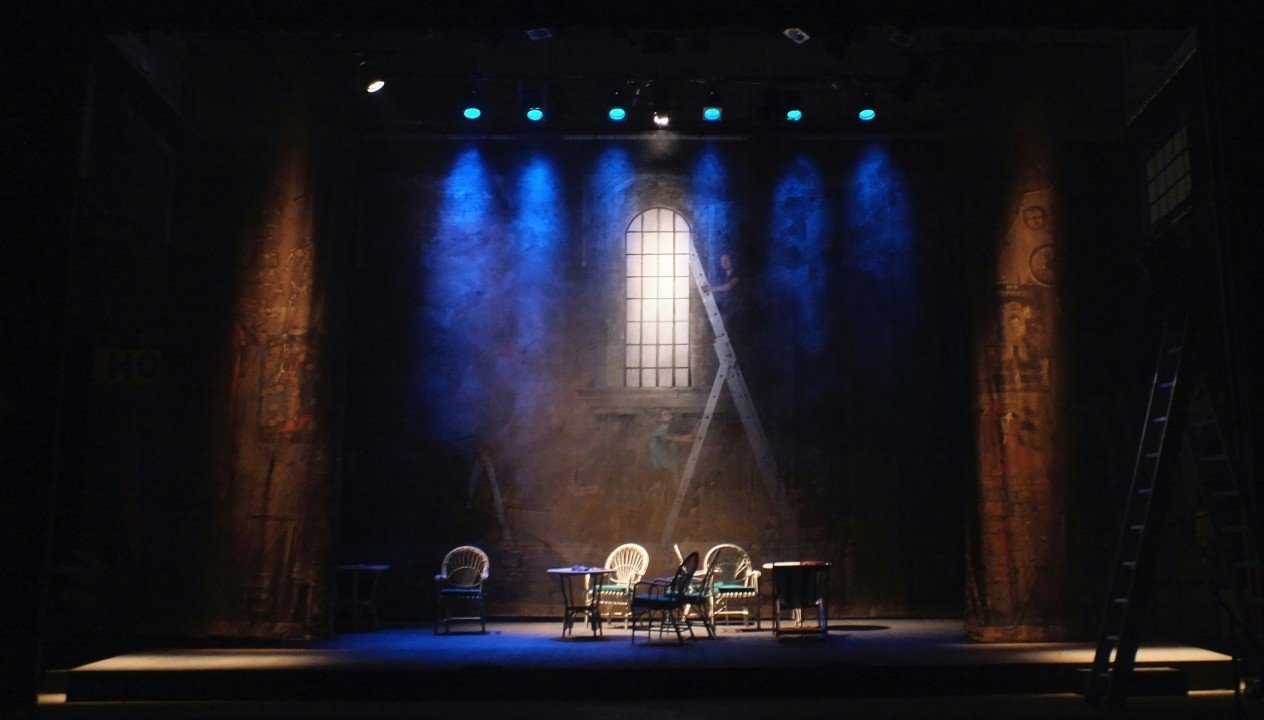Behind the Curtain: HR's growing role in Theatre Production
March 8, 2024
Written by TSHRC
When thinking about the creativity, dedication and hard work that goes into creating a successful theatre production we usually think of the set design, costume design, make up, the music and choreography and the cast. However, now more than ever we are measuring the success of that production, regardless of the length of the run, by the workplace culture of the show and the team behaviours that go into making it a success. With up to eight shows per week and company sizes of up to 200, where the schedules are tight and working conditions are stressful; it's crucial to have thoughtful HR practices in place. A healthy workplace culture is where a team is more likely to thrive, whereas and a team at odds with each other is likely to implode. With this in mind, here are our top five HR considerations for Theatre Production companies and how to navigate them to keep the show running seamlessly.
Hiring
Having a HR overview across the hiring practises of a theatre production company is now being seen as essential for attracting a diverse range of talent in the industry. From stagehands and technicians to hair, make-up and wardrobe; implementing a hiring strategy ensures that the company and production has a joined-up approach to EDI, the candidate experience and promotes that particular production company as an employer of choice within the industry.
When it comes to hiring, the biggest ask we hear is about diversifying the team and so our first recommendation is to have your HR function equip your hiring managers with interview skills training, and understand how to broaden talent pools and networks; this ensures your hiring managers are better informed, steps in the process become second nature, you can review the performance of the process and adjust accordingly all the while reducing the time to hire and improving the candidate experience.
These combined efforts lead to talent retention and better onboarding processes which naturally contribute to a stable and harmonious working environment, fostering loyalty and commitment from the outset.
Conflict Resolution and Mediation
Theatre is an intense and fast-paced world and so conflict is inevitable. Whether it's creative differences among team members or personal issues affecting performance, disputes will arise. How these are dealt with (or not) will make a difference to the show. Developing a transparent escalation process for how you’ll deal with conflict is half the battle won.
A culture whereby giving and receiving feedback is the norm, allows matters that start small to be dealt with promptly and managed by the right person. HR can help upskill people managers to deal with these difficult conversations, and where they do we see better communication flow resulting in more cohesive and healthier teams.
Code of Conduct
Creative spaces can be hotbeds for emotion and passion to run high. Having a zero-tolerance approach for abusive behaviour, harassment, discrimination, or retaliation is the clarity and expectation needed by all regardless of worker status – and a code of conduct is a simple way to communicate this.
Before production begins, ensure your HR policies and processes are up to date and accessible. When considering if your policies are indeed accessible ask yourself – can a team member get access to this information without having to ask a manger for it, can they read a company policy on a Sunday evening when they are at home and can they read the information without someone being alerted to them accessing it.
By publicising the core elements of your code of conduct in your onboarding activities, in your hiring collateral and even on posters backstage, demonstrates a visual reminder of the company expectations on building a reputable and ethical working environment.
Encourage your team to speak up about issues right away and have a reporting system in place and clearly communicate how incidents will be handled. Have an open-door policy and make it clear that issues can be raised without fear of retaliation.
Well-being and Mental Health Support
The demanding nature of theatre production can take a toll on the mental and emotional well-being of the cast and crew. The role of HR professionals within a production is to be attuned to the unique challenges of the industry and implement programs and resources to support mental health including signposting to organisations such as Applause for Thought. This not only enhances the overall well-being of the team but also contributes to a more resilient and focused workforce.
Training and Development Programs
Continuous improvement of the team is key to the success of any production - nowhere is the saying ‘practise makes perfect’ truer. And so, work with your HR function to identify skill gaps within the team. These areas are usually around performance conversations, leadership capability, culture concerns and up to date employment law practises.
Implementing training and development programs enhance the capabilities of the those that manage others and is the biggest and best investment you can make for long term and sustained improvement.
Make it stand out
Whatever it is, the way you tell your story online can make all the difference.
If in doubt about what your management team needs are – just ask and then listen, the answer is right there. Proceed to work with an HR or L&D specialist to create a well-rounded programme where you can support your team’s growth. Never assume that because someone has a management title and tenured experience - they are ready to take on the challenge of leadership in the world of today.
Whether it’s Broadway, The West End or local theatre, the attention you pay to the people within your team pays dividends. Where you are technically savvy in making the best show on earth – work with an HR professional that can do the same to help you unlock the management and leadership talents within your team. The benefits of having dedicated HR support doesn’t make you ‘corporate’ - it makes you smart. Extending far beyond administrative and operational tasks, your HR support will help you to fulfil your desire to enrich the overall experience for both the audience and the talented team of individuals who bring the magic of theatre to life.
Whatever your Production HR needs and goals, we can help you figure out a solution contact us today for a chat.
Sign up to receive our monthly newsletter and resources here!





